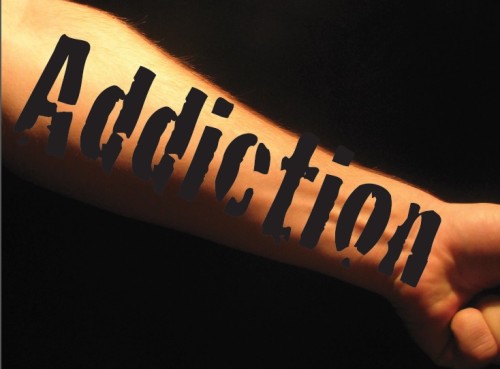Shining a light on addiction
Parents speak out

Shining a light on addiction
After fighting cancer and her own son’s drug addiction, one SFHS parent is taking her struggle to the streets.
Shelly is a founding member of the St. Francis Community Drug Awareness program. The group recently formed due to parents’ concern with a growing number of former students’ involvement with heroin. They hope to make it known that heroin abuse is an issue in the community that will not be kept in the dark anymore. Shelly spoke with the Crier to talk about her son’s personal struggle.
He had been using for a year and a half before she was even aware. Her son commonly partied his senior year, and continued to after he graduated and went on to college at AR. Shelly was aware that he was drinking and smoking marijuana sometimes, but never suspected heroin until January of this year when she received a phone call from his friend.
“I broke down and cried. I had heard about it (heroin), he had friends that overdosed, so I never ever thought that he would be one to use, because he saw what it could do,” Shelly said.
Denying that he was using heroin, Shelly’s son said that he would take the drug test she gave him. The test
came back positive, but he said that he didn’t have a problem. The first step to confronting the issue was an assessment at Delwood in Cambridge that was an hour and a half of specialists questioning him. Shelly and her husband were then told the results, which were that their son would need to go into inpatient treatment. Inpatient treatment would be 28 days of doctors, psychiatrists, and counselors teaching him to get off drugs.
“Unfortunately, our insurance said he couldn’t do inpatient treatment until he failed outpatient treatment. It was three hours, four days a week…It took him a week to fail before he used again. So they immediately put him in inpatient,” Shelly said. “After a week there he was kicked out for giving another patient a prescription drug.”
After being kicked out of inpatient treatment after only one week, Shelly got her son into another treatment facility at Hazelden in Plymouth. He said that he never had any intention to stop smoking pot or drinking alcohol, but he would want to get away from the heroin.
“He was there for three weeks and by the time he got out of there he told us he quit everything. Hazelden is an amazing place, they break you down and then bring you up,” Shelly said.
It took about seven weeks after treatment until he relapsed.
“He was in his seventh week of outpatient treatment and we started noticing strange things,” she said. “They did a urinalysis on him and it came back with heroin in his system, and he denied it.”
Shelly’s son would not admit to Hazelden that he relapsed. He became really good at lying to himself and to others, and it took him a while before he admitted that he did use heroin again. Shortly after this incident he was tested again and alcohol was found in his system and he denied it.
“These drug tests that they give are pretty accurate. He wouldn’t admit to anything and they said he couldn’t stay there anymore, and they kicked him out,” Shelly said.
After this, Shelly and her husband took it upon themselves to try and better their son, and told him that he better get a job and follow their rules or they wouldn’t deal with him anymore. He chose to disobey everything and so they kicked him out. He was then homeless for about six weeks and slept on other people’s couches. His using friends stole everything from him. Shelly’s son lives back home with them now. He’s still struggling and Shelly believes that once you’re an addict you’re always an addict.
“I don’t think kids realize that you can try heroin once and you can be addicted, or it can kill you,” she said. “And with smoking pot, you’re lowering your inhibitions so you get a little braver to try something like heroin, because you think you have control of whatever you do with drugs.”
Lisaon Officer Nate Schwieger said the problem is not just in St. Francis.
“Anoka County is a huge area,” he said.
In a recent KSTP-TV report, Anoka County Sheriff James Stuart spoke to the issue.
“We’re experiencing a challenge in the suburbs because people don’t want to admit it happens to them, in their community, in schools, to their kids. That’s part of the problem,” he said.
Shelly said it’s time for that to stop.
“A bunch of us parents, after this last death in St. Francis…We just decided enough is enough,” she said.
The St. Francis Community Drug Awareness group is comprised of parents who are tired of the drug use and want to educate people about it.
They have held several planning meetings and on November 21 they will host a parent awareness forum at 7 pm in the SFHS Performing Arts Center.
Eventually, the goal of the group is to educate the high school and middle school, too. There is also a Facebook page called St.Francis Community Drug Awareness (SFCDA) that has relevant information posted. The group says the issue of drug abuse in the community will not be brushed under the rug anymore.
“We certainly can’t stop the drug use,” said Shelly, “but we want to educate people about it.”
The group recommends the following site to get more information: www.drugserasesdreams.org.






